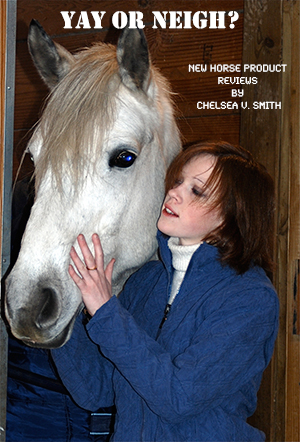News.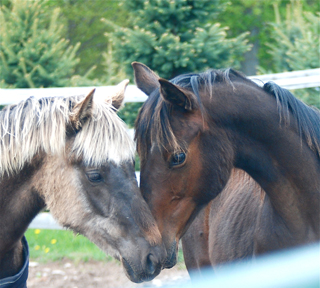
It's always fun to share horsey news with fellow horse folks. Please send us your news, wrap up of events and clinics, comings and goings at your barn and don't forget to add a photo or two. We'll share it on our facebook page. If you'd like us to give you press coverage of an event please email us the details as far in advance as possible.
New Classes, Concert & $1.5M In Cash/Prizes On Tap For 2026 APHA World Show
 Over $1.5M in cash & prizes will headline the 2026 American Paint Horse Association (APHA) World Show, coming to Fort Worth, Texas, June 19-July 4. Youth, Amateur and Open competitors will vie for championship titles in more than 340 classes. Special events abound as well, including no-horse-required Youth contests and a special concert by The Scooter Brown Band at the inaugural Honoring Freedom Night celebration.
Over $1.5M in cash & prizes will headline the 2026 American Paint Horse Association (APHA) World Show, coming to Fort Worth, Texas, June 19-July 4. Youth, Amateur and Open competitors will vie for championship titles in more than 340 classes. Special events abound as well, including no-horse-required Youth contests and a special concert by The Scooter Brown Band at the inaugural Honoring Freedom Night celebration.
2026 APHA World Championship Show
June 19-July 4, 2026
Will Rogers Memorial Center, Fort Worth, Texas
Pre-entry, stall & RV deadline: May 15, 2026
Full details & schedule: apha.com/worldshow
A plethora of prizes and cash-earning opportunities abound at the World Show. All Youth world championship classes feature scholarships awarded to the top three exhibitors and one randomly selected finalist. But that's not all. New classes, expanded no-horse-required activities and a free concert are also on tap for 2026. Read the full article...
US Equestrian Debuts Lifetime Care Feature for Recorded Horses
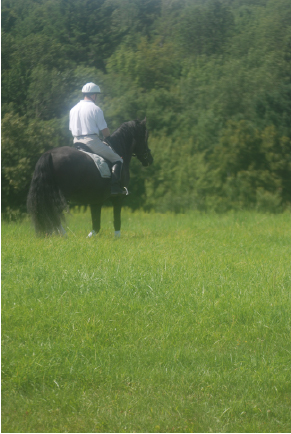 In an ongoing effort to support equine welfare, US Equestrian is unveiling a new, free feature for recorded horses called Lifetime Care Contacts. The feature is designed to allow a USEF member to add themselves to a horse's USEF record, signifying that if the horse should someday be in need of financial assistance or a home, they would like to be contacted.
In an ongoing effort to support equine welfare, US Equestrian is unveiling a new, free feature for recorded horses called Lifetime Care Contacts. The feature is designed to allow a USEF member to add themselves to a horse's USEF record, signifying that if the horse should someday be in need of financial assistance or a home, they would like to be contacted.
"We understand that many breeders, owners, athletes, and grooms care deeply for the horses who have touched their lives and want to be there for them if they should ever fall on hard times down the road,” said US Equestrian chief executive officer Bill Moroney. "We had media and member inquiries about such a system last year and realized this is a way we can help.”
The Lifetime Care Contact feature is free to use. You must be a US Equestrian member or have a free fan account to add yourself to a horse's record because horse data is part of the membership section of the US Equestrian website, but this feature will be accessible at no cost to users. Read the full article...
PATH Intl. and Markel are Proud to Announce the 2025 PATH Intl. Credentialed Professional of the Year
 The Professional Association of Therapeutic Horsemanship International (PATH Intl.) takes great pride in recognizing the exceptional credentialed professionals who serve at PATH Intl. Member Centers across the country, ensuring the highest quality of instruction in equine-assisted services (EAS). PATH Intl. is pleased to announce the winner of the 2025 PATH Intl. Credentialed Professional of the Year Award, sponsored by Markel. Congratulations to Sarah Jane Casey, nominated by Endeavor Therapeutic Horsemanship, Inc. in Beacon, New York.
Read the full article...
The Professional Association of Therapeutic Horsemanship International (PATH Intl.) takes great pride in recognizing the exceptional credentialed professionals who serve at PATH Intl. Member Centers across the country, ensuring the highest quality of instruction in equine-assisted services (EAS). PATH Intl. is pleased to announce the winner of the 2025 PATH Intl. Credentialed Professional of the Year Award, sponsored by Markel. Congratulations to Sarah Jane Casey, nominated by Endeavor Therapeutic Horsemanship, Inc. in Beacon, New York.
Read the full article...
The Overweight Horse - A New Year's Resolution
Preventing Obesity
 January 8, 2026 | Guelph, Ontario - Equine Guelph has made a New Year's Resolution to empower horse owners to learn more about their horse's nutrition and needs. January, dubbed by Equine Guelph as Nutrition Education Month, will be dedicated to learning more about the overweight horse - increasing awareness of what caregivers can do to prevent their horses from becoming over-conditioned and offer practical tips on how to tackle weight gain.
January 8, 2026 | Guelph, Ontario - Equine Guelph has made a New Year's Resolution to empower horse owners to learn more about their horse's nutrition and needs. January, dubbed by Equine Guelph as Nutrition Education Month, will be dedicated to learning more about the overweight horse - increasing awareness of what caregivers can do to prevent their horses from becoming over-conditioned and offer practical tips on how to tackle weight gain.
Research shows that nearly 29% of Canadian Horses are overweight or obese (Kosolofski et al., 2017; Mills et al. 2025). As a result, a new study was undertaken, a collaboration between the Atlantic Veterinary College and University of Guelph, to better understand the attitudes and barriers that horse owners experience regarding their obese horses. (Recent Equine Guelph research article: Survey Reveals Emotional and Practical Challenges in Managing Horse Weight). Read the full article...
Hall of Famer Joins American Farriers Journal as its Technical Editor
 International Horseshoeing Hall of Fame member Steve Kraus recently announced his retirement following 15 years of teaching at the Cornell University Farrier School. Yet, after more than a half-century of hoof care, Kraus isn't ready to step away from the industry he loves.
International Horseshoeing Hall of Fame member Steve Kraus recently announced his retirement following 15 years of teaching at the Cornell University Farrier School. Yet, after more than a half-century of hoof care, Kraus isn't ready to step away from the industry he loves.
Kraus is teaming up with American Farriers Journal (AFJ) as its new technical editor.
"Steve is a well-respected farrier, educator and innovator,” says Jeff Cota, editor of AFJ and director of the International Hoof-Care Summit. "We are thrilled he is continuing his distinguished hoof-care educational career by joining the AFJ team.”
As technical editor, Kraus will regularly write articles, host podcasts and webinars, and play integral roles in the editorial planning and execution of AFJ and the Summit.
Read the full article...

Applications Now Open for 2026 Thoroughbred Makeover
The Retired Racehorse Project (RRP) announced today that applications to compete in the 2026 Thoroughbred Makeover and National Symposium, presented by Thoroughbred Charities of America, are now open through January 23, 2026. The Thoroughbred Makeover is the largest and most lucrative retraining competition in North America for recently-retired Thoroughbred racehorses and former broodmares, and takes place on October 7-10, 2026 at the Kentucky Horse Park in Lexington.
The Thoroughbred Makeover is the banner event of the RRP and is meant both to inspire more equestrians to partner with Thoroughbreds, and to showcase the athleticism, trainability, and versatility of the recently-retired racehorse. The event awards $139,000 in prize money and is expected to welcome several hundred Thoroughbreds competing in one or two of ten riding sports. The Thoroughbred Makeover also includes the National Symposium, with a vendor fair, horse sale, seminars and demos, networking and social events, clinics, and additional opportunities to be announced throughout 2026. Read the full article...
Horizon Structures Giveaway Sweepstakes Season Is Here – FREE Run-In Shed and Ultimate K9 Kennel Package and K9 Handler Photo Contest On Offer
Horizon Structures 8th Annual Run-In Shed Giveaway is here. Just in time to light up the festive season for horse owners nationwide. Entries opened November 6th, 2025, and will run through March 9th, 2026. The lucky winner will be announced March 27th, 2026. On offer is a 10’ x 20’ run-in shed with delivery and set up included.
This is the season of goodwill and Horizon Structures loves to give back to the equestrian community to show their appreciation for the support given throughout the year.
“The humble run-in shed has long been a mainstay for shelter for a number of reasons on most horse farms. And it adds true value to horse care. Over the past 7 years that we’ve held the Run-In Shed/Barn Giveaway the winners have all been delighted with their new structures, and we appreciate all the horse owners that enter the sweepstakes and are part of our community. It takes just a few minutes to enter and as they say, “You’ve got to be in it to win it.” Good luck to all,” says Horizon Structures owner Justin Zook.
That’s Not All – K9 Kennel Sweepstakes Are Here Too
In addition to the Run-In Shed Giveaway, Horizon Structures is also offering support for the K9 community. Horizon is well-known for their stellar line-up of both residential and commercial kennels, and their range of modern modular dog kennels offer top of the line canine comfort alongside easy clean and care solutions for the busy dog owner or caregiver.
The Horizon Structures’ Ultimate K9 Giveaway is currently running in partnership with Working Dog Radio and it includes 2 sweepstakes opportunities with winners being announced March 9th, 2026.
The first Giveaway is the Ultimate Kennel Package. It includes a Horizon Structures 8’ x 10’ kennel with additional items from giveaway partners Dogtra/Worthless Handler/Tom Davis/Kinetic Dog Food/Ray Allen Manufacturing and 2 free passes to the 2026 Hold The Line Conference in Myrtle Beach, SC.
The second is the K9 & Handler Photo Contest where the winner will receive $1000 for K9 training.
“We’ve been working with the K9 training/handling community for several years now and we much appreciate all the hard-core training that these officers put in every single day. These 2 sweepstakes provide an opportunity for us to give back and show our appreciation for the job they do in a meaningful way,” explains Justin Zook.
The Giveaway entry forms for each sweepstakes are available here now. Don’t miss it!
Rate of Penicillin Administration Affects Arterial Blood Pressure
Veterinarians often give penicillin to horses during surgery to prevent infection, but the speed of injection may influence how the horse's cardiovascular system reacts. In a study of 29 horses under general anesthesia, researchers compared two methods of giving penicillin: a fast injection over one minute and a slower one over ten minutes. Read the full article...
Understanding Reportable Diseases
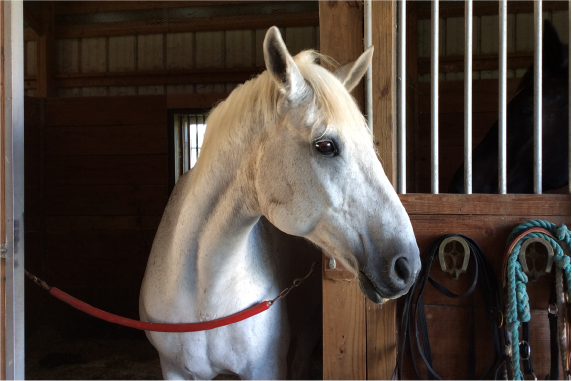
For a horse owner, receiving a positive test result from your veterinarian for an equine infectious disease can be scary and overwhelming. What is the disease? How did my horse contract it? What happens now? What is the role for state and federal animal health officials in disease control management?
Because some infectious diseases can cause significant number of sick horses and deaths and are easily spread, individual states and the United States Department of Agriculture (USDA) act on reportable diseases to prevent disease spread. Read the full article...
A New Approach for Treating Kissing Spine
Overriding Spinous Process, otherwise known as Kissing Spine can cause back pain and poor performance, especially when two or more vertebrae touch or overlap. Assistant Professor Dr. Nathalie Cote in the department of Large Animal Surgery at Ontario Veterinary College recently presented a new less invasive surgical approach to treat this issue that is showing great preliminary results. Read the full article...
MMP Enzymes and Laminitis
Eleanor M. Kellon, VMD
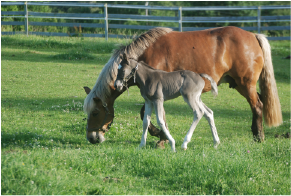 MMPs are matrix metalloproteinases – enzymes that break down connective tissue protein/collagen in the body. If you follow news releases and articles about equine laminitis, you have surely seen mention of MMP enzymes since the late 1990s. Turns out they are not the major players as was originally thought.
MMPs are matrix metalloproteinases – enzymes that break down connective tissue protein/collagen in the body. If you follow news releases and articles about equine laminitis, you have surely seen mention of MMP enzymes since the late 1990s. Turns out they are not the major players as was originally thought.
The basement membrane (BM) in the hoof is a thin layer of connective tissue lining the junction between the dead laminae of the hoof wall, and the live laminae of the inner hoof. This system locks the hoof wall to the tissues inside like Velcro.
In laminitis caused by things like colic/gut infections, black walnut shavings, grain, or experimental fructan overload, it was noted the basement membrane is damaged or destroyed and that the level of MMP enzymes is increased. This led to the theory that the activation of MMP is what causes laminitis. Read the full article...

